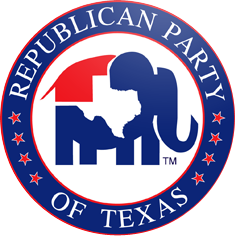
Austin, TX, Release: March 24, 2021 For Immediate Release
Below is Chairman West’s testimony to the Texas House State Affairs Committee, wherein he argues in support of HB 749. Chairman Allen West understands that lobbying may help accomplish important policy initiatives but having taxpayers fund lobbying which they may oppose is inherently wrong. This is a bipartisan issue with the vast majority of Republicans, Democrats, and Independents statewide supporting this proposal. The voice of Texas is clear and resolute on this.
Chairman West’s Testimony:
“Greetings Chairman Paddie, and the members of the Texas House State Affairs Committee. I rise before you today to support House Bill 749 by Rep. Mayes Middleton, which would end the practice of taxpayer-funded lobbying.
This issue is one of the eight legislative priorities of the Republican Party of Texas. Last year, during the March 2020 primary election, Texas Republican primary voters voted overwhelmingly – 94 percent — in support of a ban on taxpayer-funded lobbying. Of course, some on this committee may presume that this is a partisan issue; it is not. As a matter of fact, a recent poll conducted by the University of Houston revealed that 69 percent of all Texans — including 64 percent of Democrats, 71 percent of Republicans, and 71 percent of Independents — support a ban on taxpayer-funded lobbying. Therefore, I would fully expect my Texas Democrat Party counterpart to submit testimony also supporting the end of this practice.
Chairman Paddie, and members of the State Affairs Committee, this is truly a bipartisan issue, one upon which we can all agree is best for Texans. We must end the use of public, taxpayer funds, to hire lobbyists or pay a state association who primarily represent political subdivisions and/or hires and contracts with registered lobbyists. It is imperative that we realize that HB 749 does not seek to punish our small municipalities or rural counties. This legislation, and the Republican Party of Texas believes, will reduce the opportunity of using public funds to lobby against the interests of citizens.
We believe that local staff, and elected officials, should be the ones traveling to express their concerns about the issues they face in their respective locales. The people are best served when their elected officials interact with other elected officials, not by way of highly paid Austin special interests who often do not reflect the interests of the constituency . . . to the recent tune of $41 million!
This legislation by Rep. Middleton gets to the essence of living in a representative democracy, direct communication between elected officials. Communication that represents the interest of the citizens, not self, not special interests.
Case in point, recently, taxpayer-funded lobbyists have supported increases in property, sales, gas, and severance taxes, and vehicle registration fees. These same Austin-based taxpayer-funded lobbyists have opposed a ban on a state income tax, election integrity measures, eminent domain reform, and fixing our teacher pension system. This begs the question, whose voice is being heard in Austin, in the Texas State Capitol Building?
At a time when we should all want a system of electoral representation that does not give unfair advantage to those who pay, we should all seek to ban taxpayer-funded lobbying. This may not be unlawful, but it is certainly unethical.
As a former member of Congress, I am well aware of the practice of lobbying, and that there are worthy causes legislators are asked to support, such as our veterans. However, to use the hard-earned resources of our Texas citizens to pay those who would advance initiatives that work against Texans is unconscionable.
Chairman Paddie, it is my sincere hope that you and the members of the Texas House State Affairs Committee will unanimously support Rep. Mayes Middleton’s HB 749 and vote it out of committee for full House vote.“
###
Recent Comments